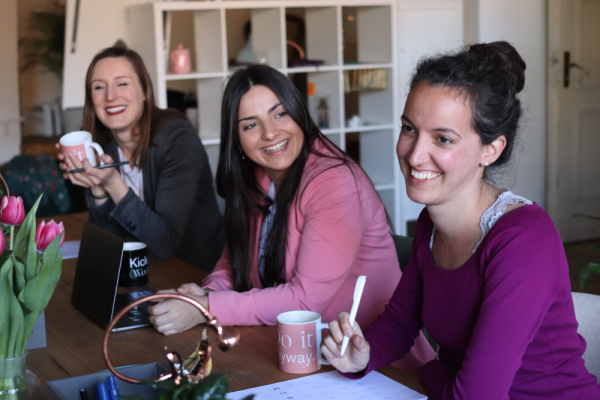Webinar on gender, numeracy and social mobility
To coincide with the new research briefing, National Numeracy hosted a webinar called Gender, Numeracy and Social Mobility on 20 July where a panel discussed the report’s findings – in particular that women typically have lower numeracy confidence than men – looked in detail at the data, answered questions from participants, and suggested what could be done to address the issues raised.
What the panel said:
Lucy-Marie Hagues, UK CEO, Capital One, Member of the Government’s Expert Advisory Group on Maths to 18 and Member of the National Numeracy Leadership Council, said: “I would like us to get to a point where we say: ‘Maths is not something you’re good at, maths is something we all work at all the time.’
“We should be setting that example. We should be sat at the table, struggling with something in front of our kids. We should be looking it up to see how you might go about doing it.
“We should be using the National Numeracy tools that are there to help us and showing all the time that this is something that’s fun and enjoyable and that actually, the process of working through it is the thing that matters, not being quickest to the right answer or getting it right first time.”
Tammy Fevrier, Deputy Director, Youth and Skills, Department for Work and Pensions, Member of the National Numeracy Leadership Council, said: “Confidence and motivation are absolutely at the core of this. We will wait, as a gender, in the main, before we can tick every single box on that job application before we’ll actually go for it, as opposed to just giving it a go.
“I think it’s up to us as supporters of girls and women to say: ‘It’s OK not to have everything perfect and have all the answers. Giving it a go and participating is good enough and it will get you there. Just trust in yourself.’”
Sam Sims, National Numeracy Chief Executive, said: “National Numeracy’s experience over the past 11 years has revealed that building confidence with numbers and the belief that we can all improve our skills is key to addressing the issue of low numeracy.
“The research revealed fresh insight into the power of improving number confidence as well as the rich and varied ways it can positively impact upon people’s lives, particularly when it comes to things like work opportunities and broader learning outcomes. It also revealed a yawning gap in number confidence between women and men.”
Paul Foss, National Numeracy Head of Impact and Evaluation, said: “From our regular national surveys, more women than men describe themselves as ‘not a numbers person’ and women are more likely to say that maths and numbers make them feel anxious. Wherever we look the differences are marked, they’re statistically significant and they’re omnipresent.”





